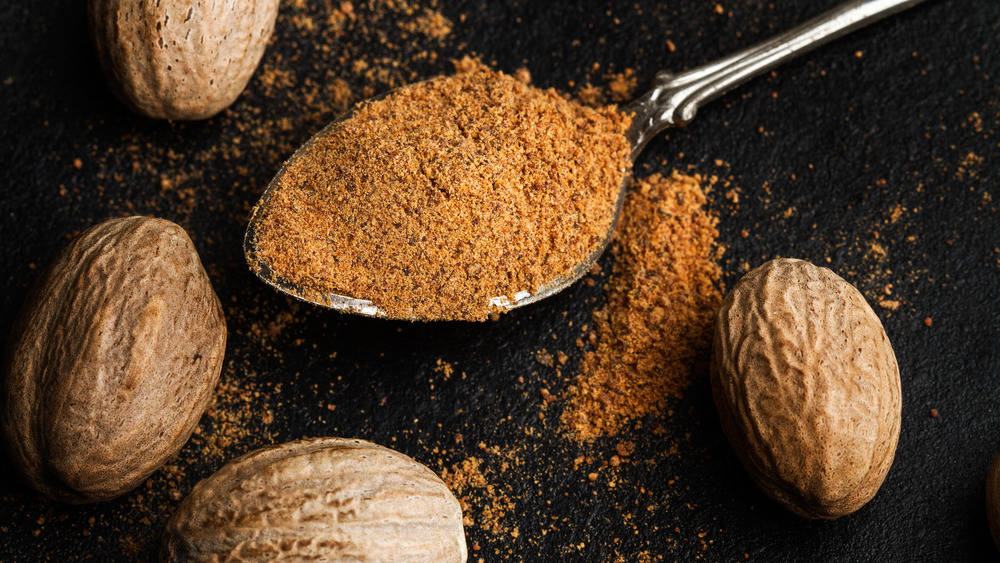What Eating Too Much Nutmeg Really Does To Your Body
One of the most popular spices of the holiday season is nutmeg — a warm, nutty, slightly sweet flavor found in everything from eggnog to pumpkin pies.
Nutmeg is a seed that comes from the tropical evergreen tree Mystica fragrans, native to Indonesia (via The Spice House). Freshly ground nutmeg has an intense aroma that is similar to the profiles of cardamom and pine.
While most people associate nutmeg with desserts, a dash of nutmeg enhances savory dishes as well. As noted in Fine Cooking, nutmeg's warm, slightly peppery flavor can add just the right flavor to everything from lamb to lasagna. And while a pinch or two is all most recipes call for, that's actually a good thing — because while a little bit of nutmeg is delicious, too much can be dangerous.
Too much nutmeg can be harmful to your health
Nutmeg contains a compound called myristicin, a psychoactive substance that, in larger doses, can actually poison your system, per a study published in the Emergency Medical Journal. Eating more than 10 grams (about 2 teaspoons) of nutmeg can cause myristicin poisoning, which can result in seizures, irregular heartbeat, nausea, dizziness, dry mouth, pain, and hallucinations similar to those people get when taking peyote.
Describing the effects of "nutmeg intoxication," Dr. Edward Boyer, professor of emergency medicine and director of toxicology at the University of Massachusetts Medical School, told The New York Times, "People have told me that it feels like you are encased in mud. You're not exactly comatose, but you feel really sluggish. And your remembrance of events during this time period is incomplete at best."
Luckily, according to Boyer, cases of nutmeg poisoning are rare, with most overdoses caused by intentional misuse of the spice. He said he's only seen two cases of hospitalization for myristicin poisoning in 15 years — and both of those were teenagers doing it to get the hallucinogenic high.
The moral of this story? Enjoy your nutmeg this holiday season, but stick to a pinch or two — your health depends on it.

